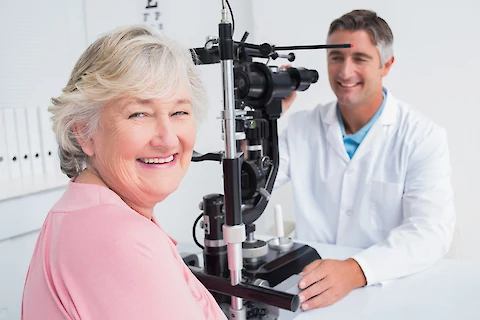
August is National Eye Exam Month, and it reminds us of the importance of eye health and regular checkups, especially for our senior loved ones. The risk of eye conditions tends to rise for senior citizens, making regular eye exams crucial. If your senior family member historically experiences eye maladies or shows signs of current problems, you will want to make an appointment ahead of the scheduled timeline. This post points out some common eye disorders and will walk you through the tell-tale signs that your senior family member may need an early eye exam.
The Importance of Regular Eye Exams for Seniors
Don't let your family member excuse changes in vision as a normal part of aging. With annual checkups, it's possible to curtail eye conditions and vision loss and enjoy relatively healthy vision throughout their lives.
Eye diseases, such as glaucoma, cataracts, and macular degeneration, become more common as we age. These conditions significantly impact vision if left untreated. Regular eye exams become the frontline defense. Routine checkups help doctors detect these problems early, increasing the possibility of effective treatment and management.
Signs That a Senior May Need an Early Eye Exam
Take a look at the signs below to determine if you need to schedule an eye exam for your loved one:
- Difficulty with close-up tasks like reading or seeing small objects: If your loved one is constantly squinting or straining to see, it could hint at a developing eye problem.
- Frequent headaches may also indicate a warning sign: Often, these headaches result from eye strain due to uncorrected vision. If your relative is experiencing persistent headaches, an early eye exam may be warranted.
- Reports or observations of halos around lights or changes in color perception: These light changes may signal conditions like cataracts or color vision deficiency.
- Problems adjusting to dark rooms or complaints of double vision, flashes of light, or floaters: These symptoms could indicate severe conditions like retinal detachment that require immediate medical attention.
What to Do If You Notice These Signs
Identifying these signs represents the first step. Next, you need to take immediate action. If you notice any symptoms, don't hesitate to schedule an eye exam immediately. The optometrist will conduct various tests during the exam to identify any eye disorders.
The findings will determine the treatment recommendations and options. These treatments could range from corrective glasses or contacts to medication and, in some instances, surgery. Regardless of the diagnosis, early detection will help prevent further deterioration.
We Can Help
Regular eye exams play a crucial role in senior health care, especially if they exhibit any signs that hint at a developing condition. Remember, early detection makes a world of difference.
If you're in Fort Collins, Greeley, Windsor, Estes Park, or Longmont, Senior Helpers Greeley wants to help you care for your senior loved ones. Don't hesitate to contact us today. We would love to discuss our comprehensive senior services like Wellness Check and Personal Care.